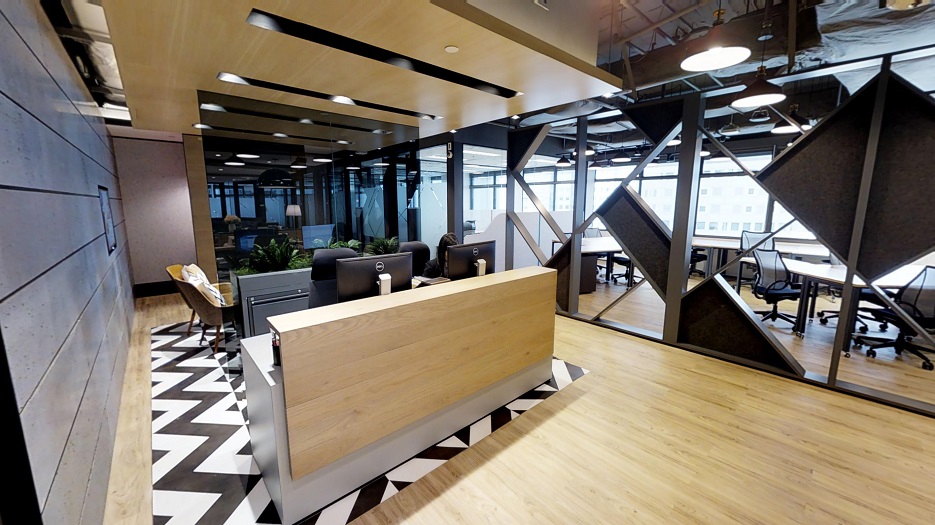Your Complete Guide to Company Registration in Singapore

After gaining independence from Malaysia in 1965, Singapore proceeded to rank among the top nations in the world for GDP growth. The island city-state achieved an apex of 9.2% annual growth within 2.5 decades according to the World Bank1. Today, the Lion City that is home to 5.6 million is recognised as a leading global finance centre. Below, we’ll discuss the main reasons that Singapore is a good place for entrepreneurs to start a business, and detail a step-by-step guide to registering a company in Singapore.
Why register a company in Singapore?
Singapore is an ‘Asian Tiger’ country, a label that is given to just four exceptionally developed and high-income East Asian economies (including Hong Kong, Taiwan and South Korea). It is a top destination for entrepreneurs to start their businesses when looking to enter the Asian market due to several factors:
• No taxation on capital gains from business;
• Efficient and transparent government;
• Pro-business government stance, including start-up subsidies and policies promoting international trade;
• Strong intellectual property (IP) protection.
The island nation is well-suited for foreign entrepreneurs entering the Asia-Pacific Region to set up shop. This is largely helped by the fact that foreign and local businesses operate under the same economic laws, as well as the policy that non-nationals are allowed to own 100% of the shares of a company in Singapore. Compare this to foreigners starting a business in the Philippines, where at least 60% of the company’s equity must be owned by a Filipino native.
How to set up a company in Singapore
Step 1. Register your business with ACRA
To start with, you must be 18 or above to operate a business in Singapore. All businesses must begin their company formation process by registering with Singapore’s Accounting and Corporate Regulatory Authority (ACRA) through Bizfile+.
The only exception is if the company name is identical to the full name of the businessowner (or full names of business partners) as stated on their National Registration Identity Card. However, if any words are added to the business name (e.g. ‘Doughnuts by Adrian Chen’), the business must be registered.

Step 2. Choose the company type
The next step in opening a company in Singapore is to choose the appropriate legal structure for your business. Factors like the industry you’re in, how many business partners there are, how much capital is invested and how much liability owners are willing to take on will determine the business entity type. The business’ legal structure will go on to determine tax rates, paperwork requirements and how protected the owner is from future lawsuits, so make sure to choose carefully.
There are four main business structures in Singapore: sole proprietorship or partnership, limited partnership (LP), limited liability partnership (LLP) and limited liability company (LLC).
A certain type of LLC, called private limited company, is a popular choice of business entity among entrepreneurs and SMEs. It is a separate legal entity, protecting owners of the LLC (called members) from bankruptcy in the event that the business loses money. The company can also be sued without the members themselves being part of the lawsuit.
Private limited companies are also relatively flexible and scalable compared to other types of business entities. (Take a look at this table from ACRA to determine which business entity would best fit your company.)
There is a fee associated with setting up each business entity. For unlimited companies and LPs, one-year validity costs S$115 and three-year validity costs S$175. The S$115 fee for LLPs and the S$315 fee for companies only applies once since these two entity types continually exist as separate legal entities, unaffected by death of owners, insolvency of the company or ownership change.
Step 3. Choose a business name
The third action in business registration in Singapore is to choose a unique name for your business. Use the ACRA Register on Bizfile+ to check if your desired company name has already been taken by typing it into the search bar at the top of the page. If the name is already in use, you can add words to differentiate it.
Note that there is a list of words that will be disregarded because they don’t change the name enough to make it clear to people that your business is different from an existing business. These include adding “The” to the beginning, or “And Company”, “Incorporated”, “Singapore” or “.com” to the end of the company name.
Then, apply for the business name through the Bizfile+ portal, which will come with a S$15 fee. You must complete company incorporation within 120 days, or else the name will be released for others to use. During the name registration, you must also define your business activity type by choosing one of the codes from the Singapore Standard Industrial Classificiation (SSIC) system.
Business names containing certain words require approval from referral authorities, which can add 14 to 60 days to the company registration process. For example, names containing the word “foundation” or “international” require approval from the Ministry of Culture, Community and Youth; names containing “school” or “learning centre” require approval from the Ministry of Education.

Step 4. Give ACRA an appropriate address
The next step in setting up a company in Singapore on Bizfile+ is to give ACRA an address attached to your business. Sole proprietorships, partnerships and LPs may give a residential address as the business address, given that they have gotten approval from the Housing Development Board or Urban Redevelopment Authority overseeing the residence.
LLPs and companies must give a registered office address, where communications to the company are addressed. A P.O. box cannot be used as a business address.
Business owners and people already working for the company (e.g. directors or secretaries) must also provide their residential addresses, or alternate addresses in the same jurisdiction as the residential address where they can be reached. These addresses are later made public as part of business profiles that anyone can purchase to learn more about a certain company.
Step 5. Apply for licences and permits
The final step in company incorporation in Singapore is to apply for the CorpPass, which is a digital identifier and login number businesses will use to complete transactions with government agencies. You should also use the GoBusiness website to check if your particular industry requires certain licences or permits to operate.
Company registration in Singapore for foreigners
For the most part, non-Singaporean natives can follow the above steps to incorporate a business in Singapore. They simply need to apply for the EntrePass, which is a visa for overseas entrepreneurs and investors. The EntrePass allows you to run a business in Singapore for one year, and then two years at a time with subsequent visa renewals.
Here are some particulars for foreigners to note when doing business registration in Singapore:
• You can apply for the EntrePass before, or within six months after, incorporating the company with ACRA;
• If you permanently reside outside Singapore or move away after company incorporation, you must appoint a local resident to run the business;
• If you hold a Dependant’s Pass (held by children and spouses of Employment or S Pass holders), you must get a Letter of Consent from the Ministry of Manpower after business registration.
• If you’re a Work Pass Card holder with a Foreign Insurance Number (FIN), you should check with the Ministry of Manpower or Immigration & Checkpoints Authority to check if you can open a business in Singapore.
Look for an office space

After completing company incorporation in Singapore, it’s time to start looking for a suitable office. There are many factors to consider when hunting for a workspace in Singapore, from how much space your team needs, to location (and office rental price), to rental term.
Flexible office spaces like serviced offices work great as swing spaces for start-ups entering Singapore for the first time and wanting to test the waters, or even as long-term solutions for firms that want the ability to be agile. These allow businesses to rent for weeks or months at a time. Meanwhile, virtual offices help establish a local presence for companies first while sorting out moving physical operations to the country.
Conclusion
Compass Offices provides modern, corporate-grade office solutions in multiple business centres in Singapore. From hot desks and co-working spaces to serviced offices and fully tailored enterprise solutions for headcounts up to 100+, we are here to help you ensure not only that setting up your business in Singapore goes smoothly, but that you are able to focus on growing your new company or Singapore branch office with all the support you need in the years to come. Get in touch with us to learn more or book a tour.





